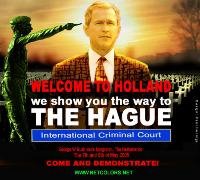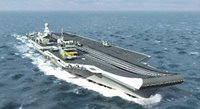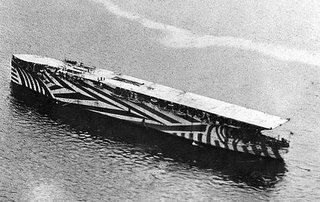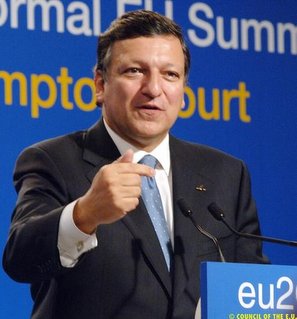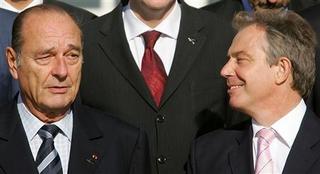 A few days ago my colleague covered the remarkable story of 47 French politicians, 27 of whom can be described as senior, being found guilty of financial malpractice and receiving suspended sentences as well as rather high fines (which they may or may not pay). Let me repeat that: 27 senior politicians were found guilty. Not simply accused but actually found guilty after an exhaustive and exhausting trial.
A few days ago my colleague covered the remarkable story of 47 French politicians, 27 of whom can be described as senior, being found guilty of financial malpractice and receiving suspended sentences as well as rather high fines (which they may or may not pay). Let me repeat that: 27 senior politicians were found guilty. Not simply accused but actually found guilty after an exhaustive and exhausting trial.Furthermore, it was made clear during the proceedings that one man was missing from the line-up of defendants: President Chirac, l’escroc himself.
Big news, one would have said. Well, one would have been wrong. The story was covered somewhat half-heartedly on the day and forgotten since then by most of the media.
Compare that with the acres of newsprint devoted to the indictment of Lewis Libby, former assistant to Vice-President Cheney and a man of whom few have heard in the United States until this week, never mind in Britain.
The indictment of this man on secondary charges (I shall come to that in a minute) has been trumpeted as the greatest case of political corruption since … well, since the last greatest case.
The White House, according to some commentators, has never sunk so low. Excuse me? In the previous Administration it was the President himself who was indicted and not for giving possibly misleading information to journalists (who, as we know, always tell the truth, the whole truth and nothing but the truth) but for telling lies on oath and suborning others to do the same.
The only reason he got off was because those same Democratic Senatorsm, who are now screaming for Bush to apologize to the nation, which seems unaware that it has been wronged as even according to the Washington Post poll well over half think it was not the President’s fault, thought that perjury by the President was not big deal. Well, not if it is everybody’s favourite Dem President, “Slick Willy” Clinton.
In fact, the whole story is a bit of damp squib. Patrick Fitzgerald, who was clearly hoping to make his career on the case, has not managed to produce any substantive accusation. As he himself has said:
“We have not made any allegation that Mr. Libby knowingly and intentionally outed a covert agent.”So what has Mr Libby done? Well, it seems that his story of what he told various Washington journalists is at variance with what they think he told them but, in any case, it was some months ago and they were discussing events of some months previous to that, so nobody really remembers anything. But after promising to do “such things …. that shall be the terror of the earth”, Mr Fitzgerald had to come up with something.
In some ways, this resembles the Martha Stewart case. The household guru was not accused of insider dealing and had not fiduciary duty to do with the shares that she sold but she was accused and found guilty of not telling the truth to the FBI about whatever it is she was not accused of. A dubious legal doctrine.
Still, one can rejoice in the fact that Martha Stewart has done extremely well out of the whole business. I understand Mr Libby’s novel is shooting up in the Amazon bestseller list, so he may well find himself crying all the way to the bank as well.
One of the most extraordinary aspects of this saga is that it is the commentators on the left (and most MSM ones both in the States and in Britain are), to whom the CIA is usually anathema, who should be so “shocked” by the suggestion that a covert agent was outed. Surely, they are against covert agents as a class and believe all of them should be outed immediately, preferably in hostile countries.
But, of course, Valerie Plame had not been a covert agent for many years and, furthermore, seems to have used her position in the agency, quite against the rules, to promote a political agenda that was contrary to the Administration’s one. Many of her husband’s statements about his trip to Niger, on which he ought not to have been sent, seem to have been economical with the truth.
However, let us leave the details of the Wilson/Plame case to one side. In any case, they are very well covered by Christopher Hitchens in today’s Wall Street Journal.
What remains is the unimportance of Mr Libby’s indictment either in judicial or political terms. Yet there has been wall-to-wall coverage in the British media as opposed to a few articles on the day about the far bigger French case.
Some of this can be put down to the visceral anti-Americanism that leads all sides of our media to gloat whenever things seem to go wrong in that country. The gloating gets stronger as it becomes clearer that, actually, things are not going quite as badly as it was thought at first and, in any case, mistakes are being put right somewhat more rapidly than they are on this side of the Pond.
Some of it is led by American journalists who also produced wall-to-wall coverage of the Libby indictment, the preceding threats and even the rather empty reality. I don’t suppose there was similar coverage in the French press of the French politicians actually being found guilty of misappropriation of funds. (And, anyway, how many of our journalists read French well enough?)
But, in a way, this discrepancy in the coverage is an unintended compliment to the United States. French politicians found guilty of corruption? Well, hey, dog bites man. Gardener digs soil. Supermodel takes drugs. In other words, big deal!
A White House official is indicted on a minor misdemeanour, which may have involved him telling porkies to journalists? Wow! That’s like news, man.
COMMENT THREAD




